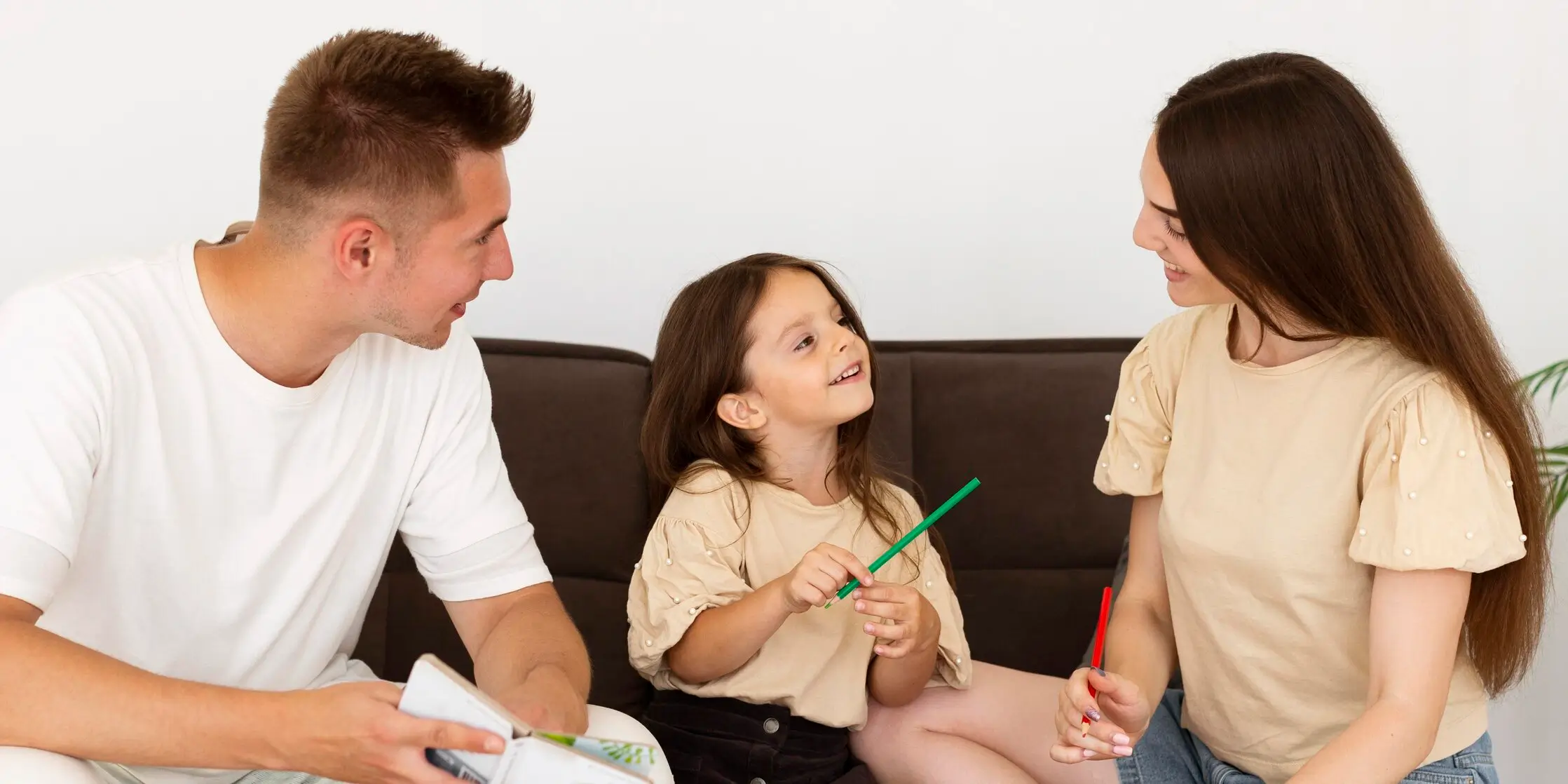Imagine juggling a toddler’s meltdown while your phone buzzes with work emails and news alerts about climate shifts. Welcome to parenting in 2025. Parenting approaches have evolved far beyond simple rules or routines; they now weave in technology, mental health awareness, and global influences to help families thrive. At their core, parenting approaches involve methods like authoritative, authoritarian, permissive, and uninvolved styles, often blended with techniques such as gentle or attachment methods. Research spanning over 50 years highlights two key factors: responsiveness, which means showing warmth and sensitivity to a child’s needs, and demandingness, or the level of control parents exert over behavior.
This confusion often leaves parents overwhelmed, sifting through endless advice to find what fits their family. Yet, studies consistently show that authoritative parenting approaches stand out as the gold standard, fostering better social-emotional well-being and fewer behavioral issues in kids. For instance, children raised with these balanced parenting approaches tend to develop strong self-regulation skills. But in today’s world, with remote work blurring home boundaries and AI tools entering daily life, parents face new pressures.
A 2024 American Psychological Association article notes that parental burnout affects up to 5 million U.S. parents, with rates as high as 8-36% in Western countries, driven by factors like non-supportive coparenting and emotional regulation challenges. These figures underscore why adapting parenting approaches is crucial for family harmony.
By exploring core styles, hybrids, practical tools, and future trends, you’ll gain a roadmap tailored to real life. Whether you’re a new parent or refining your methods, these parenting approaches offer ways to nurture bonds while setting kids up for success. Drawing from expert insights, this guide emphasizes cycle-breaking, where parents shift from past patterns to promote healthier outcomes. With emotional intelligence at the forefront, modern parenting approaches prioritize empathy alongside structure, helping children navigate an increasingly complex world.
Key Takeaways
- Authoritative parenting approaches combine warmth and boundaries for optimal child outcomes.
- Hybrid styles allow customization based on your family’s unique needs and cultural background.
- Strategies like mindfulness and consistency help combat parental burnout, affecting millions.
- Tech integrations, from AI apps to VR activities, are reshaping modern parenting approaches.
- Focus on emotional regulation and resilience to prepare kids for 2025’s challenges.
The Core Parenting Approaches: Foundations with a Modern Twist
Parenting approaches start with four foundational styles, rooted in how parents balance responsiveness and demandingness. These aren’t set in stone; many evolve as families grow or face new realities like digital distractions. In 2025, with kids navigating AI-driven education and diverse social norms, adapting these parenting approaches matters more than ever. Here’s a breakdown, including pros, cons, and updates from recent studies showing authoritative methods linked to higher resilience, better emotional well-being, and lower depressive symptoms in children.
| Style | Responsiveness Level | Demandingness Level | Key Characteristics | Outcomes/Pros/Cons | Modern Adaptations |
|---|---|---|---|---|---|
| Authoritative | High | High | Warm, communicative, sets clear rules with explanations | Better emotional intelligence; pros: fosters independence, higher self-esteem; cons: time-intensive | AI apps for goal-tracking |
| Authoritarian | Low | High | Strict rules, punishment-focused, little warmth | Structure but anxiety risks; pros: discipline in high-pressure settings; cons: stifles creativity, low self-esteem | Video explanations for rules |
| Permissive | High | Low | Lenient, friend-like, avoids confrontation | Creativity but poor self-control; pros: nurturing bonds; cons: entitlement, academic struggles | AR games for chores |
| Uninvolved | Low | Low | Detached, minimal guidance | Independence but emotional gaps; pros: self-reliance in extremes; cons: poor well-being, mental health issues | Mindfulness apps for reconnection |

These parenting approaches reflect cultural contexts, too. For example, Western cultures often lean toward individualistic styles like authoritative, emphasizing self-expression, while Asian traditions may favor authoritarian elements to promote collective harmony and academic achievement. Logic here is simple: what works in one society might clash in another, so understanding these differences helps parents blend effectively for global families.
A. Authoritative Parenting Approaches: The Balanced Blueprint for Empowerment
Authoritative parenting approaches shine by pairing high expectations with genuine support and open dialogue. Parents guide kids through reasoning, validating feelings while enforcing boundaries that teach life lessons. For example, instead of just punishing a missed chore, you might discuss why it matters for family teamwork, helping children internalize values. This builds trust and self-control, with 2024 research confirming that kids from these parenting approaches show higher academic success, empathy, and cognitive development.
Pros include happier, competent children who excel in social settings; a downside is the effort needed for constant communication, which can strain busy schedules. In 2025, blend in tech like journaling apps where families log daily reflections, turning setbacks into growth opportunities. Track progress with weekly check-ins to measure emotional gains, making these parenting approaches more measurable and rewarding. Real-life logic: When kids feel heard, they’re more likely to cooperate, reducing conflicts over time.
B. Authoritarian Parenting Approaches: Structure in an Era of Chaos
Authoritarian parenting approaches emphasize strict rules and obedience, often without much explanation or warmth. Demands are high, but responsiveness stays low, leading to quick compliance through punishment. Think of parents insisting on “because I said so,” which provides clear structure but can breed resentment or fear.
While it suits high-pressure environments, like competitive schools in some cultures, it risks low self-esteem and rebellion, per 2024 studies on teen mental health linking it to increased behavioral problems. To adapt, incorporate flexibility by using videos to explain rules, helping kids understand the logic behind demands. This softens the approach without losing order, appealing to parents from traditional backgrounds. The reasoning: Structure is vital, but without warmth, it can hinder emotional growth in a world valuing mental health.
C. Permissive Parenting Approaches: Nurturing Freedom Amid Boundaries
Permissive parenting approaches prioritize warmth over structure, letting kids lead with few rules or consequences. Parents act more like friends, using bribery or leniency to avoid conflict, which can spark creativity but lead to struggles with responsibility and self-discipline.
In a consumer-heavy 2025, this might foster entitlement; counter it by introducing gamified systems, like AR apps that reward chores, easing into firmer boundaries. Studies show children from permissive homes may face academic and relationship hurdles, but adding light structure can mitigate this. Logic validates this: Freedom encourages exploration, yet without limits, kids miss learning accountability essential for adulthood.
D. Uninvolved/Neglectful Parenting Approaches: The Hidden Dangers and Paths to Redemption
Uninvolved parenting approaches involve low engagement across the board, where parents meet basic needs but offer little emotional or disciplinary input. This differs from busy parenting, where overload from work might mimic detachment but stems from temporary strain rather than indifference.
Risks include poor emotional regulation and mental health issues; redemption comes through tools like support groups or apps that prompt daily check-ins, rebuilding connections step by step. Research highlights how neglect correlates with lower well-being, urging early intervention. The key logic: Even unintentional distance affects development, but conscious efforts can reverse trends, especially in high-stress households.
Emerging and Hybrid Parenting Approaches: Beyond the Basics
As families diversify, hybrid parenting approaches mix core styles with fresh ideas, like gentle methods or attachment focus. Recent surveys show parents increasingly blend to heal generational patterns, with 2025 trends favoring personalized twists such as cycle-breaking and attachment styles on the rise.
- Pros of hybrids: Flexible, culturally adaptable, and promote emotional intelligence.
- Cons: Requires trial and error, potential inconsistency.
A. Gentle Parenting Approaches: Empathy-Driven Discipline in the Digital Age
Gentle parenting approaches solve issues collaboratively, avoiding power struggles. Use VR role-plays to build empathy, helping kids process feelings without screens dominating. This fosters secure attachments, which is logical for reducing tantrums through understanding.
B. Free-Range vs. Helicopter Parenting Approaches: Balancing Independence and Safety
Free-range encourages exploration with safety nets like wearables; a helicopter hovers closely, risking anxiety. Urban parents might lean on GPS for peace of mind, balancing risk with growth, logical in safety-conscious times.
C. Attachment Parenting Approaches Evolved: Building Bonds with Tech and Tradition
Attachment parenting approaches nurture close ties; evolve with detox retreats to fight tech overload, drawing from Circle of Security for emotional security. This supports co-regulation, vital for young kids transitioning to independence.
D. Creating Your Hybrid Parenting Approaches: A Personalized Framework
Tailor by assessing your responsiveness, try this quiz: Rate 1-10 how often you explain rules (high for authoritative). Score guides blends, like adding gentle elements to authoritarian roots, making parenting approaches truly yours.
Proven Strategies and Techniques: Actionable Tools for Everyday Success
Effective parenting approaches rely on tools that reinforce styles. From positive praise to consistent rules, these build skills amid daily chaos, backed by emotion regulation research.
A. Collaborative Discipline: Co-Creating Rules with Kids
Involve children in problem-solving, like family meetings to set screen limits, fostering ownership, and reducing resistance logical for long-term cooperation.
B. Quality Time Reimagined: From Meals to Metaverse Adventures
Shared walks or VR quests combat attention-seeking, strengthening bonds in isolated times. With average screen time at 6 hours 40 minutes globally in 2024, intentional offline moments matter.
C. Positive Reinforcement: Building Habits with Gamification
Praise specifics, like “Great job sharing!” Apps track rewards for motivation, encouraging repeated good behavior naturally.
D. The Art of Repair: Healing Ruptures for Stronger Connections
Acknowledge impact after slip-ups, modeling apologies through creative notes or talks, and repairing trust is essential for secure relationships.
E. Mindfulness for Parents: The 7-7-7 Rule and Beyond
Breathe in for seven, hold, exhale. Devices monitor stress, ensuring calm responses during high-emotion moments.
F. Consistency and Fairness: Establishing a Family Constitution
Draft rules together, following through to close loopholes and build trust, preventing confusion.
G. Conflict Resolution Mastery: Teaching Lifelong Skills
Teach calm talks and responsibility; practice role-reversals for online spats, preparing kids for real-world interactions.
H. Knowing Yourself and Your Child: Tailoring Strategies for Success
Be responsive, not reactive, and overcome triggers from your past. Adjust for the child’s age, using co-regulation for toddlers shifting to self-regulation. For delays, check milestones via resources like Raising Children Network, ensuring developmental fit.
I. Bonus Unique Strategy: Fostering Emotional Intelligence Through Storytelling
Co-author stories to label emotions, like “The cat’s bang scared you, let’s cuddle,” helping kids articulate feelings.

Navigating Challenges: Real-World Hurdles and Innovative Solutions
Parenting approaches hit roadblocks; here’s how to pivot, considering cultural variations where Western individualism contrasts with collectivist emphases.
A. Digital Dilemmas: Screens, Social Media, and Sanity
Set AI filters; 2024 data shows 1 in 4 teens with 4+ hours daily screen time experience anxiety. Logic: Limits protect development without banning tech.
B. Cultural and Societal Influences: Adapting to Diversity
Blend Western and Eastern parenting approaches for multicultural homes, respecting differences in warmth expression.
C. Parental Self-Care: Avoiding Burnout in 2025
Micro-breaks with smart tech; burnout links to coparenting issues, affecting child wellbeing.
D. Handling Special Circumstances: Single Parents, Blended Families, and More
Adapt for neurodiversity or blends, distinguishing busy from uninvolved to maintain support.
Case Studies and Success Stories: Inspiration from Real Families
One family shifted from authoritarian parenting approaches to hybrids post-divorce, using repair rituals kids gained confidence through consistent empathy. Another multicultural household blended styles, improving bonds. Takeaways:
- Start small with co-regulation.
- Model apologies for resilience.
The Future of Parenting Approaches: Trends and Predictions for the Next Decade
AI coaches personalize advice; eco-focused and lighthouse parenting rise, with trends like delaying tech exposure and emphasizing play. Ethical tech use will define resilient parenting approaches, logical for a digital future.
Conclusion: Your Parenting Journey Starts Now
Parenting approaches aren’t one-size-fits-all; experiment with hybrids and strategies to suit your life. Embrace being “good enough” in these parenting approaches, and seek support when needed. Download a free workbook to map your style, ensuring your family thrives.
FAQs
- Q: What’s the best parenting approach for toddlers in 2025?
- A: Authoritative with co-regulation builds security.
- Q: How do parenting approaches styles evolve?
- A: They adapt with experience, blending as kids grow.
- Q: What is the difference between uninvolved and busy parenting approaches?
- A: Busy is temporary overload; uninvolved is consistent detachment.
- Q: Practicing mindfulness in tantrums?
- A: Use 7-7-7 breathing for calm.
- Q: Why consistency in parenting approaches?
- A: It prevents loopholes, teaching reliability.
- Q: Can tech enhance parenting approaches and styles?
- A: Yes, AI apps support emotional tracking.
- Q: Handling cultural differences in parenting approaches?
- A: Blend traditions for inclusive bonds.




